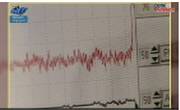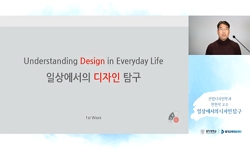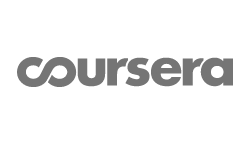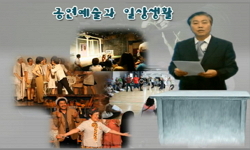This study examined the narrative characteristics and origin of ``lying`` oral narratives that have been orally transmitted in Korea with literary and semiotic viewpoints. ``Lying`` oral narratives consist of several levels, from short stories exhibit...
http://chineseinput.net/에서 pinyin(병음)방식으로 중국어를 변환할 수 있습니다.
변환된 중국어를 복사하여 사용하시면 됩니다.
- 中文 을 입력하시려면 zhongwen을 입력하시고 space를누르시면됩니다.
- 北京 을 입력하시려면 beijing을 입력하시고 space를 누르시면 됩니다.

"거짓말" 구비서사의 서사적 성격과 신화적 기원 -문학적, 기호학적 관점의 혼용- = The Narrative Characteristics and Mythological Origin of "Lying" Oral Narratives -through Literary approach & semiotic approach-
한글로보기https://www.riss.kr/link?id=A82648914
- 저자
- 발행기관
- 학술지명
- 권호사항
-
발행연도
2011
-
작성언어
Korean
- 주제어
-
KDC
701.05
-
등재정보
KCI등재
-
자료형태
학술저널
-
수록면
145-175(31쪽)
-
KCI 피인용횟수
4
- 제공처
-
0
상세조회 -
0
다운로드
부가정보
다국어 초록 (Multilingual Abstract)
This study examined the narrative characteristics and origin of ``lying`` oral narratives that have been orally transmitted in Korea with literary and semiotic viewpoints. ``Lying`` oral narratives consist of several levels, from short stories exhibiting only delicateness of expression to long ones that also exhibit delicateness of content. Regardless of length, however, they can all be categorized as ``lying`` oral narratives, and thus it is necessary to explain the unique nature of these narratives. There have been few studies on ``lying`` oral narratives, and no attempt has been made to analyze them as a separate type of oral narrative. Thus, regarding ``lie`` oral narratives as an independent form of orally transmitted narrative, this study analyzed their narrative characteristics and presented everyday, goal-oriented, paradoxical, and argumentative characteristics. In addition, when we consider that lies are not a desirable form of discourse but still have elements capable of attracting people`s interest (or are worthy to be valued positively), the characters in ``lying`` oral narratives are comparable with ``tricksters`` in myths. This suggests that the origin of ``lying`` oral narratives is in myths, which are representative products of an oral society that invests the ``word`` with authority. In other words, we may see ``lying`` oral narratives as variations of oral cultural memories of mythological tricksters in the transmitters of these ``lying`` oral narratives.
참고문헌 (Reference)
1 정막래, "희극성과 웃음" 나남 2010
2 김유경, "한국의 <거짓말 설화> 연구" 경성대 교육대학원 2001
3 한국정신문화연구원, "한국구비문학대계" 1980
4 임석재, "임석재전집 4 한국구전설화(함경북도 편·함경남도 편·강원도 편)" 평민사 1989
5 임석재, "임석재전집 3 한국구전설화(평안북도 편Ⅲ·평안남도 편·황해도 편)" 평민사 1988
6 임석재, "임석재전집 1 한국구전설화(평안북도편-Ⅰ)" 평민사 1987
7 위르겐 슈미더, "왜 우리는 끊임없이 거짓말을 할까" 웅진지식하우스 2011
8 장 보드리야르, "시뮬라시옹" 민음사 2001
9 박성철, "소위 ‘새빨간 거짓말’에 대하여-전형적인 거짓말에 대한 화용언어학적 고찰" 한국독어독문학회 80 : 2001
10 송효섭, "도깨비의 기호학" 한국기호학회 1 (1): 101-145, 2004
1 정막래, "희극성과 웃음" 나남 2010
2 김유경, "한국의 <거짓말 설화> 연구" 경성대 교육대학원 2001
3 한국정신문화연구원, "한국구비문학대계" 1980
4 임석재, "임석재전집 4 한국구전설화(함경북도 편·함경남도 편·강원도 편)" 평민사 1989
5 임석재, "임석재전집 3 한국구전설화(평안북도 편Ⅲ·평안남도 편·황해도 편)" 평민사 1988
6 임석재, "임석재전집 1 한국구전설화(평안북도편-Ⅰ)" 평민사 1987
7 위르겐 슈미더, "왜 우리는 끊임없이 거짓말을 할까" 웅진지식하우스 2011
8 장 보드리야르, "시뮬라시옹" 민음사 2001
9 박성철, "소위 ‘새빨간 거짓말’에 대하여-전형적인 거짓말에 대한 화용언어학적 고찰" 한국독어독문학회 80 : 2001
10 송효섭, "도깨비의 기호학" 한국기호학회 1 (1): 101-145, 2004
11 움베르토 에코, "기호학 이론" 문학과지성사 1985
12 김운찬, "기호와 거짓말" 지중해지역원 4 (4): 25-40, 2002
13 월터 J. 옹, "구술문화와 문자문화" 문예출판사 1995
14 볼프강 라인하르트, "거짓말하는 사회" 플래닛미디어 2006
15 조은경, "거짓말의 특징과 탐지" 한국심리학회 21 (21): 33-65, 2002
16 엘리엇 애런슨, "거짓말의 진화" 추수밭 2007
17 움베르토 에코, "거짓말의 전략" 열린책들 2009
18 하랄트 바인리히, "거짓말의 언어학" 한국외국어대학교 출판부 2010
19 심우장, "거짓말 딜레마와 이야기의 역설 - 설화 <거짓말 세 마디로 장가든 사람>의 이해" 한국구비문학회 (28) : 301-332, 2009
20 Radin, Paul, "The Trickster: A Study in American Indian Mythology" Philosophical Library 1956
21 류정월, "<거짓말 이야기>에 대한 고찰" 한국고전연구학회 5 : 1999
동일학술지(권/호) 다른 논문
-
- 한국기호학회
- 이찬웅 ( Chan Woong Lee )
- 2011
- KCI등재
-
괄호의 쓰기와 읽기 -삽입 기호의 발화 작용을 중심으로-
- 한국기호학회
- 장인봉 ( In Bong Chang )
- 2011
- KCI등재
-
공공 조형물과 장소, 수용자의 대화적 상호작용 -내러티브 모델링과 커뮤니케이션
- 한국기호학회
- 이윤희 ( Yun Hee Lee )
- 2011
- KCI등재
-
데리다의 글쓰기와 들뢰즈의 사건: 구조주의 수용의 두 양상
- 한국기호학회
- 김상환 ( Sang Hwan Kim )
- 2011
- KCI등재
분석정보
인용정보 인용지수 설명보기
학술지 이력
| 연월일 | 이력구분 | 이력상세 | 등재구분 |
|---|---|---|---|
| 2027 | 평가예정 | 재인증평가 신청대상 (재인증) | |
| 2021-01-01 | 평가 | 등재학술지 유지 (재인증) |  |
| 2018-01-01 | 평가 | 등재학술지 유지 (등재유지) |  |
| 2015-01-01 | 평가 | 등재학술지 유지 (등재유지) |  |
| 2011-01-01 | 평가 | 등재 1차 FAIL (등재유지) |  |
| 2009-01-01 | 평가 | 등재학술지 유지 (등재유지) |  |
| 2006-01-01 | 평가 | 등재학술지 선정 (등재후보2차) |  |
| 2005-05-29 | 학술지명변경 | 외국어명 : semiotic inquiry -> Semiotic Inquiry |  |
| 2005-01-01 | 평가 | 등재후보 1차 PASS (등재후보1차) |  |
| 2003-01-01 | 평가 | 등재후보학술지 선정 (신규평가) |  |
학술지 인용정보
| 기준연도 | WOS-KCI 통합IF(2년) | KCIF(2년) | KCIF(3년) |
|---|---|---|---|
| 2016 | 0.72 | 0.72 | 0.66 |
| KCIF(4년) | KCIF(5년) | 중심성지수(3년) | 즉시성지수 |
| 0.6 | 0.59 | 1.335 | 0.14 |





 KISS
KISS






